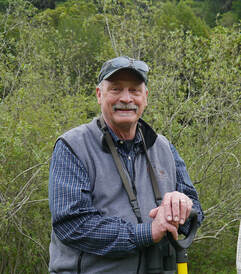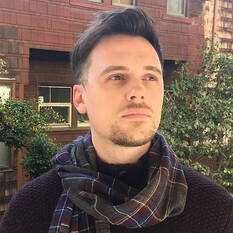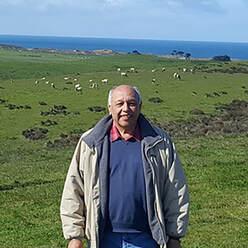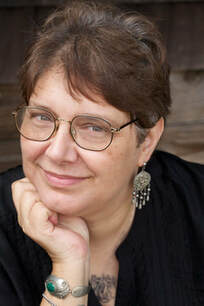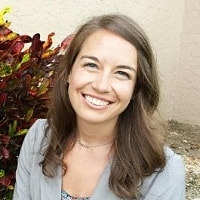Panelists
WendelL Gilbert
Wendell Gilbert was born and raised in Northern California on a fourth generation family farm in eastern San Joaquin County. For nearly twenty years, he worked as a Soil Conservationist, District Conservationist, and Area Conservationist in Northwestern Nevada and Northern California. He has also served as Wildlife Biologist for the NRCS Wildlife Habitat Management Institute at Colorado State University and NRCS California State Biologist. For the final six years of his NRCS career he served as the West Region Wildlife Biologist for the National Technical Support Center in Portland, Oregon. In June 2011, he retired from a 34 year career with NRCS and transitioned to work with the Point Blue Conservation Science to direct their Rangeland Watershed Initiative which is an effort to place, train, and manage partner biologists to help plan, implement and monitor USDA Farm Bill Programs on private land and re-water Rangeland Watersheds.
Sam Mickey
Sam Mickey is an adjunct professor in the Theology and Religious Studies department at the University of San Francisco. He has also taught at Dominican University of California, Pacifica Graduate Institute, and the California Institute of Integral Studies, and he has worked for the Forum on Religion and Ecology at Yale. His research and teaching interests include environmental ethics, religion and ecology, and integral ecology.
Nick tipon
Nick Tipon was born, raised, and lives in Santa Rosa. He is a retired high school teacher and is a current Board member of the Historical Society of Santa Rosa, Fibershed, and is a member of the Point Blue Conservation Science STRAW faculty. Nick is an enrolled member and elder of the Federated Indians of Graton Rancheria (Coast Miwok and Southern Pomo). He has served as Chairman of the Tribal Education Committee and the Tribe’s Sacred Sites Protection Committee. He also served as the Tribe’s National Parks and Native American Graves Protection and Repatriation Act (NAGPRA) Liaison and is a former Tribal archaeological site monitor. Nick lectures on a variety of topics related to changes to Native American cultural resources, archaeology, curation of artifacts, and the treatment of Native American cultural resources. He consulted and lectured at the Smithsonian Museum of Natural History in Washington DC and the Field Museum of Chicago.
Aurora Levins Morales
She is a writer, an artist, a historian, an activist and a healer. She tells stories with medicinal powers. Herbalists who collect wild plants to make medicine call it wildcrafting. Aurora wildcrafts the details of the world, of history, of people's lives, and concentrates them through art in order to shift consciousness, to change how we think about ourselves, each other and the world. The stories we tell about our lives shape what we're able to imagine, and what we can imagine determines what we can do. Aurora's mission is to change the stories we tell and help us imagine a world where greed has no power, where the earth is cherished and all people get to live safe, satisfying lives.
Moderator
Kimberley carfore
Kimberly Carfore is a PhD candidate in the Ecology, Spirituality, and Religion program. She has a BA in psychology from the University of Michigan. She currently teaches Nature Immersion at the University of San Francisco.
Kimberly's research includes ecofeminism, deconstruction, feminist theory, environmental humanities, and wilderness studies. Her dissertation topic outlines how it is impossible for the western, dualistic self to hear the implicit voice of the wild. Kim argues for the development of an ecological self.
Kim grew up on Lake Huron. She is a former wilderness field instructor where she was transformed by the powers of the wilderness.
Select papers that Kimberly has presented at conferences include: "Feasting Well: Eating, Being Edible, and Playing with Derrida;" "Specters of Ecology: A Deconstructive Interpretation of Hungry Ghosts;" "Post-Secular Justice and the Ghosts of Big History;" "Of Strange Strangers: Interconnected Others in Religion and Ecology;" and "Fire and Evolution: Teilhard and Transformation." She has also led a panel on "Othering" in the Ecofeminism track at the conference Seizing an Alternative: Toward an Ecological Civilization.
Kimberly's research includes ecofeminism, deconstruction, feminist theory, environmental humanities, and wilderness studies. Her dissertation topic outlines how it is impossible for the western, dualistic self to hear the implicit voice of the wild. Kim argues for the development of an ecological self.
Kim grew up on Lake Huron. She is a former wilderness field instructor where she was transformed by the powers of the wilderness.
Select papers that Kimberly has presented at conferences include: "Feasting Well: Eating, Being Edible, and Playing with Derrida;" "Specters of Ecology: A Deconstructive Interpretation of Hungry Ghosts;" "Post-Secular Justice and the Ghosts of Big History;" "Of Strange Strangers: Interconnected Others in Religion and Ecology;" and "Fire and Evolution: Teilhard and Transformation." She has also led a panel on "Othering" in the Ecofeminism track at the conference Seizing an Alternative: Toward an Ecological Civilization.
